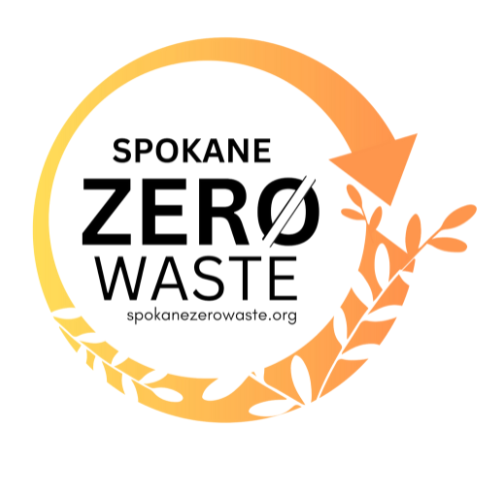
Fibershed
Waste Wool to Working Wool Webinar
90% of sheeps wool is burned or landfilled, but this material is a valuable resource that can help support agriculture, farmers, artisans and the environment. Learn with us.
On August 8, Spokane Zero Waste hosted a webinar with Amy DuFault, Founder of the Southeastern New England Fibershed , which includes Massachusetts and Rhode Island. A Fibershed is defined as all the fiber, dyes, and activities within a certain region to support that region. Amy’s goal is to work with wool producers, processors, and product manufacturers to reduce the amount of sheared wool that is wasted each year (at least 50% in the United States, 90% in Europe) and to “reinvigorate the once-thriving New England textile industry”.
They have found that one of the biggest obstacles to using more wool is finding enough scouring facilities to clean the wool for further processing. Disposing of the lanolin-filled wash water can be a real challenge (permitting, pretreatment, onsite disposal vs. municipal disposal), making it difficult to start a scouring business. Other challenges include too much vegetative matter (VM) in the fleeces, the cost to process often exceeds the value of the wool, too few wool processing businesses, and not enough education to producers about regenerative farming and methods for reducing VM in fleeces.
The Fibershed helps producers and processors make the necessary connections to supply and process the wool using cooperatives, which improves the economics to as much as 45% profit (without considering labor). New processing businesses in New England are being created to cater to smaller producers, since the big processors like Chargeurs in Charleston, SC and Bollman Hat Company in San Angelo, TX are not able to accommodate small producers.
Ms. DuFault presented many innovative ways that wool is being used or is proposed to be used. Note that some of these are being produced by mills in the Pacific Northwest.
Padding to replace plastic bubble wrap for shipping products
Wool bandaids
Blown-in building insulation (Havelock Wool in Reno, NV, currently gets their wool from New Zealand)
Seed starter pots, tree starter sleeves, and weed mats made from wool
Erosion mats for construction sites
Wool duvet covers and pillows
Wool batting in quilts and clothing
Wool pellets as plant fertilizer (see Long Way Homestead video on manufacture and use)
Spokane Zero Waste is exploring the local support for creating a Fibershed in the area, or at least using some of the strategies discussed above (cooperative processing, producer education, collaboration with product manufacturers). If you are interested, please contact Elyse Hochstadt at info@spokanezerowaste.org.
“You never change things by fighting the existing reality.
To change something, build a new model that makes the existing model obsolete.”
